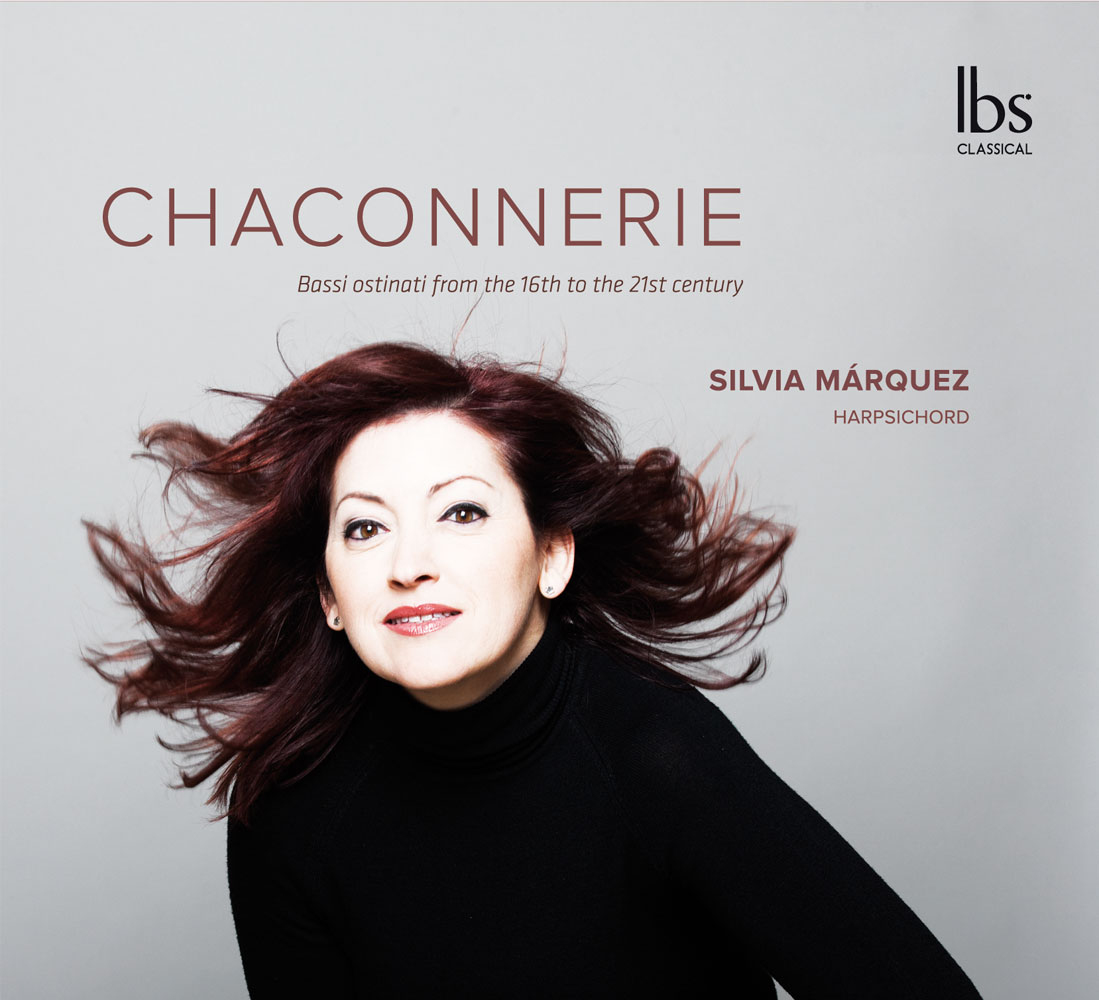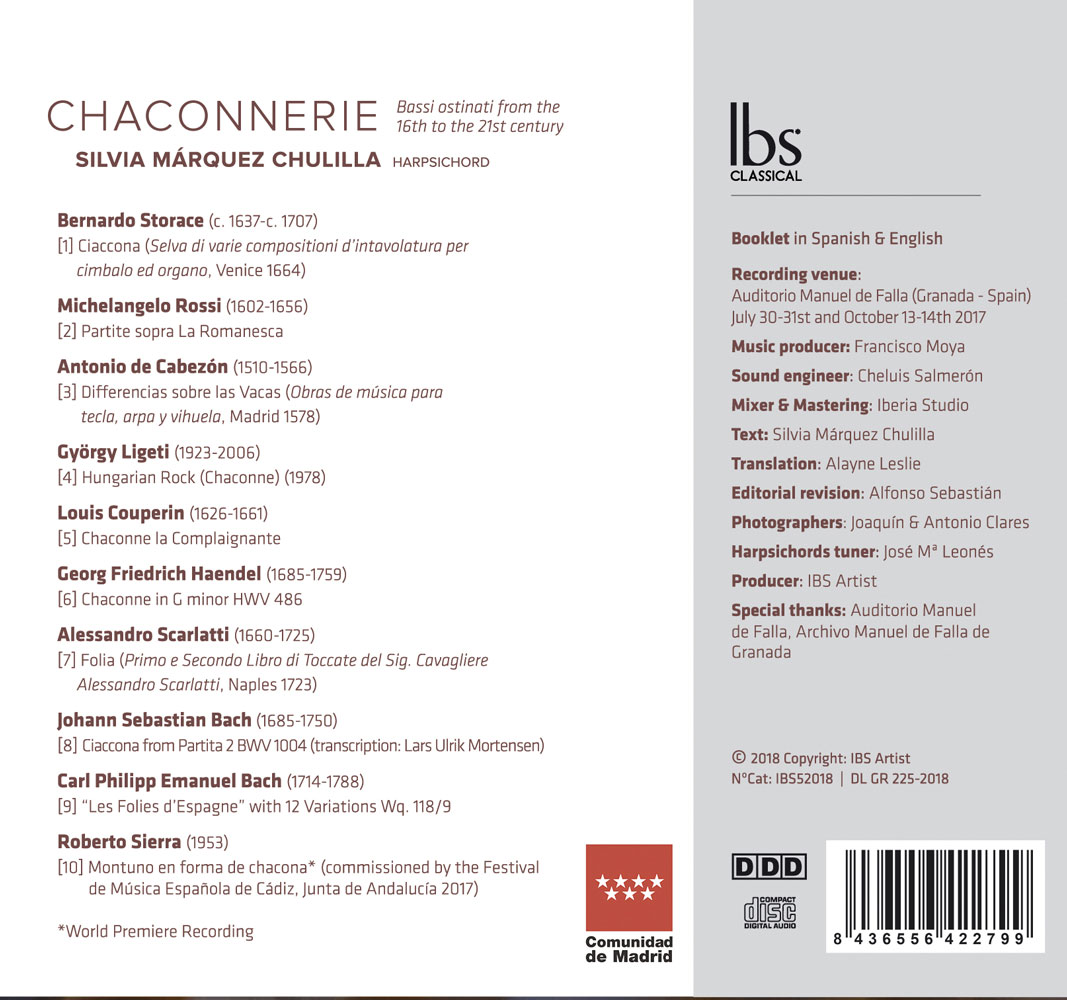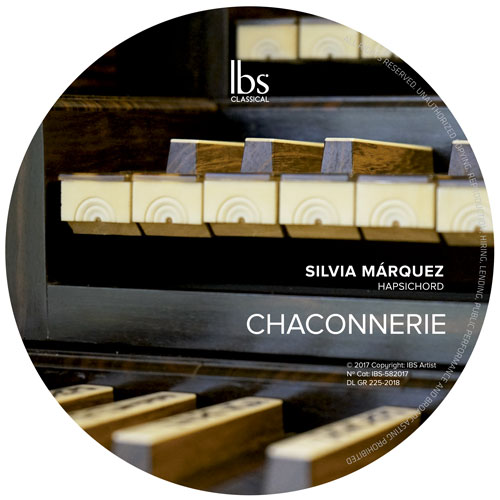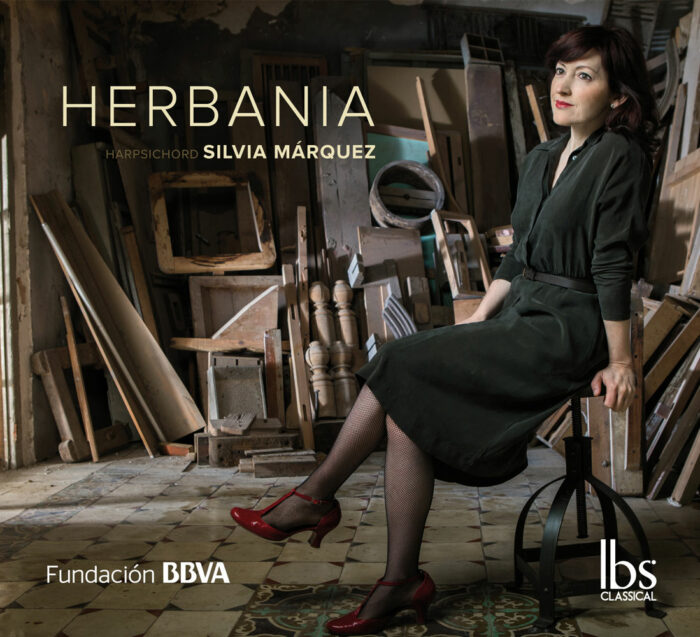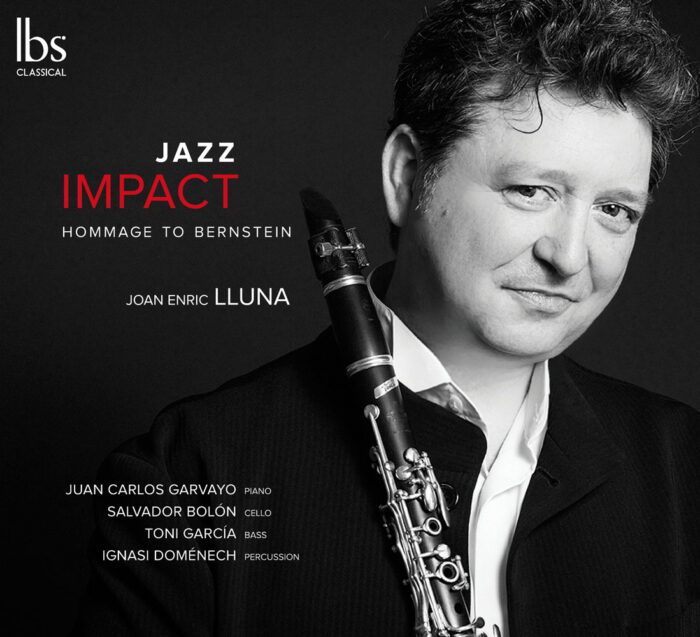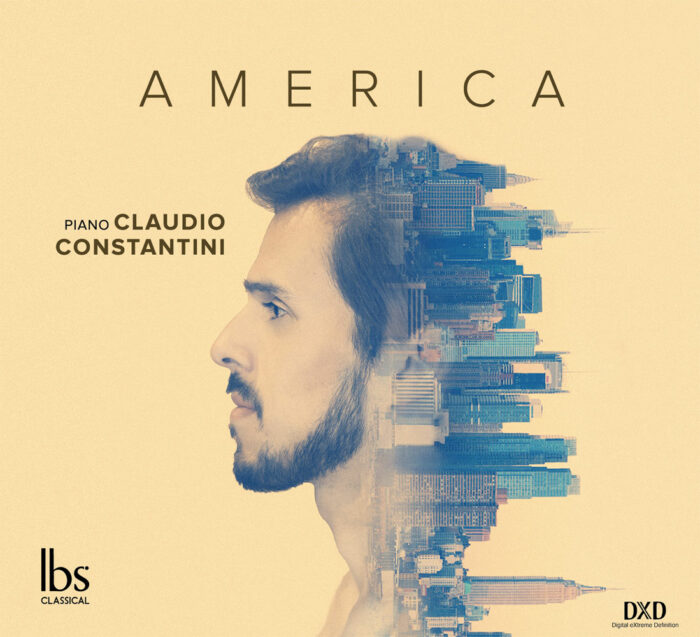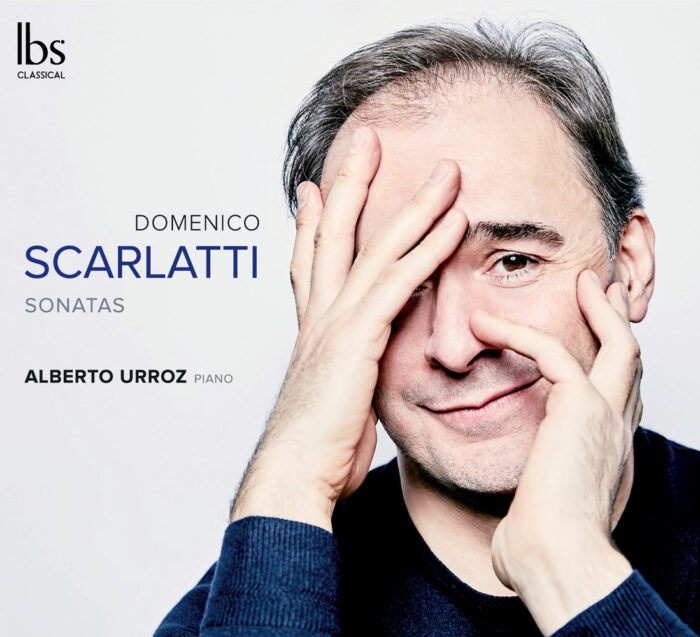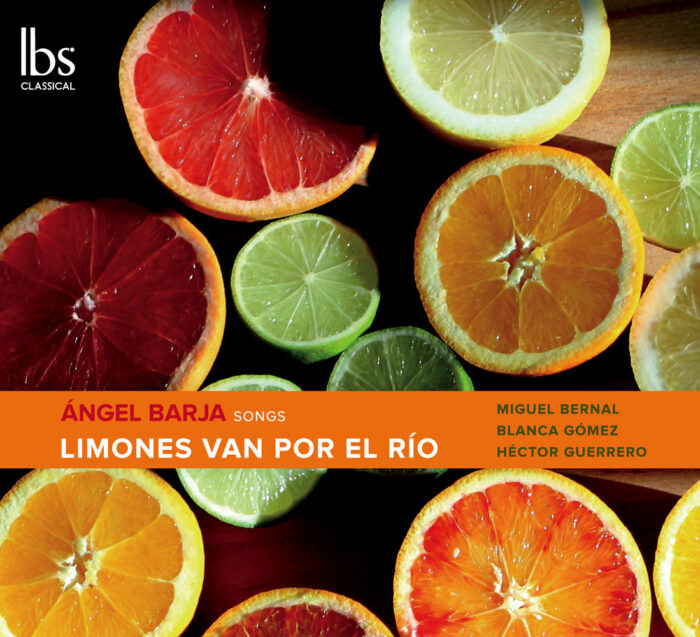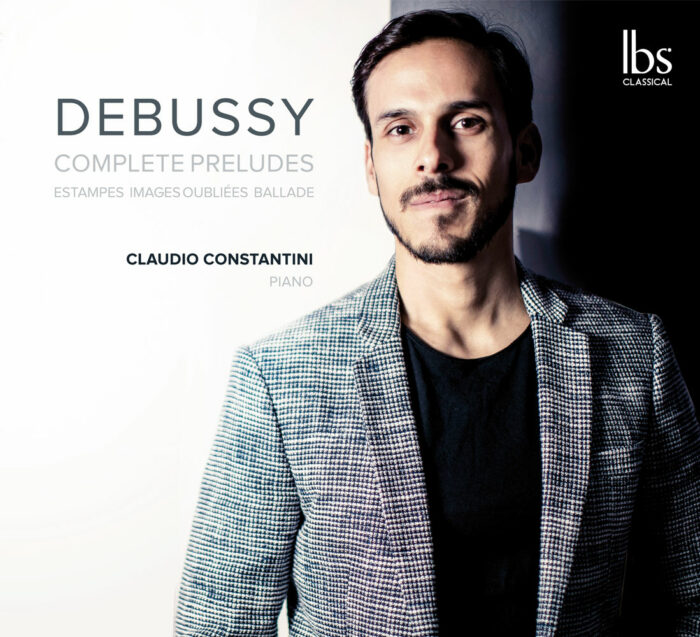Chaconnerie
14,95€
Silvia Márquez
Chaconnerie is a recording that deals with repetition. Chaconnerie illustrates that particular principle of Art that seeks to combine elements over and over again to achieve balance and unity. Chaconnerie encourages us to undertake a voyage in which sounds –through the centuries– build upon an insistently repeated, or imaginatively varied, scheme. Repetition has been a major element of humankind’s artistic manifestations and expressions ever since the time of the moais on Easter Island up to the drawings of Max C. Escher. Repetition is rhythm, pulse, and life, and life overflows in the chaconne, a dance whose origin Lope de Vega attributed to the American Indian (“from the Indies to Seville / it has come by post”) and whose character Miguel de Cervantes describes as lascivious and immoral. With its accent on the second beat and its variations on a harmonic scheme, this dancing base – together with sarabandes, folias, and passacaglias – was conducive to improvisation on chordal progressions, a novelty that had a crucial impact on Baroque music in Europe.
14,95€
Silvia Márquez
Restless and enthusiastic, she is presently one of the most versatile and active performers. A specialist in historical keyboards, she feels equally comfortable on harpsichord, organ, or fortepiano. Born in Zaragoza, she won First Prize for both Harpsichord and Organ in 1996 at the Young Music Performers’ Permanent Contest. From that point on, awards and acknowledgements followed: Special Jury Prize for the best historical performance and an Honorable Mention at the 1999 Spring International Contest in Prague, an Honorable Mention at the 2001 Bruges Harpsichord International Contest (Belgium), among others. She was a member of the 2001 European Union Baroque Orchestra, performing in France, Germany, England, the Netherlands, Belgium, Italy, Spain, Hungary and China, under conductors Roy Goodman, Andrew Manze, Alfredo Bernardini and Edward Higginbottom. She has performed in Spain, France, Germany, Ireland, Switzerland, The Netherlands, Italy, Croatia, Andorra, Austria, Slovakia, Estonia, Portugal, Bolivia and Panamá, and for the last few years she has been invited to be a member of the jury in numerous competitions. She widely performs as a soloist, chamber musician, and orchestral player with such conductors as Fabio Biondi, Giuliano Carmignola and Paul Goodwin, among others. She has appeared as a soloist with the Orquesta de Cámara Española, Orquesta Sinfónica de la Región de Murcia, Soloists Orquesta Barroca de Sevilla, Grupo Enigma and others, and she regularly performs with early music ensemble Forma Antiqva. A number of her concerts have been recorded and broadcast by RNE2, RTVE, BBC, RTL and Czech Radio. Her recordings include discs of music by A. Vivaldi (Warner 2004), D. Scarlatti and Haendel (MAA 2007), C. P. E. Bach (Arsis 2009) and L. Boccherini (alongside harpsichordist Alfonso Sebastián). Nevertheless, she focuses predominantly on her own group, La Tempestad (www.latempestad.es), whose acclaimed discs of the premiere recording of Joseph Haydn’s 12 London Symphonies in the arrangements of Johann Peter Salomon, and Mozart Infrecuente attest to their research in this field. A recent release, Iberian Harpsichord Concertos (IBS Classical 2017), with the first Iberian concertos writen for the keyboard (M. Narro, J. Palomino, G. B. Pergolesi), is a world premiere. La Tempestad has been awarded two prizes for the best Classical Ensemble and best Director (Silvia Márquez) by GEMA (Spanish Early Music Groups Association) and was the winner of FestClásica Early Music Network 2016. Silvia Márquez completed her degrees on Harpsichord and Organ in her birth place under the guidance of J. L. González Uriol. Awarded a scholarship by the Spanish Ministry of Foreign Affairs and the Dutch government, she went on to further her studies at Amsterdam’s Sweelinck Conservatorium and at The Hague’s Royal Conservatory, where she studied Harpsichord (Jacques Ogg and Menno van Delft), Organ (Jacques van Oortmerssen) and Fortepiano (Stanley Hoogland). On the organ, the teachings of Montserrat Torrent were relevant for her, as was, in a wider field, the guidance of Gustav Leonhardt, Jesper Christensen, Jan Willen Jansen, Guy Bovet, Jon Laukvik, Christine Whiffen, Andrea Marcon, Patrick Cohen and Lars Ulrik Mortensen. She has taken postgraduate courses at C.S.I.C. (Musicology section) in Barcelona and the University of Alcalá de Henares, while studying Art History and Musicology at various universities (Zaragoza, Granada, UAM). She holds a Master’s Degree in Cultural Management with an Extraordinary Prize from the UOC (Barcelona). Equally passionate about music of the 20th and 21st centuries, during her stay in The Netherlands she specifically worked on contemporary repertoire with harpsichordist Annelie de Man, with whom she recorded music for two harpsichords by Roderik de Man (Attacca 1999). She has premiered works by various composers from Spain and abroad, both for soloist and chamber ensemble (she performed the premiere in Spain of Concerto Nocturnal by Roberto Sierra). Her repertoire includes harpsichord concertos by F. Poulenc, F. Martin, B. Martinu and M. de Falla, and she works with composers to encourage the creation of new pieces. Her last project, focused on Spanish 20th century music for harpsichord, has led her to receive the Leonardo Grant 2017 for Researchers and Cultural Creators, BBVA Foundation. Silvia Márquez was Professor of Harpsichord at the Conservatorio Superior de Música de Aragón in Zaragoza (Spain) from 2007 until 2016. Prior to this appointment, she taught at the Conservatories of Salamanca and Murcia (1999-2007). She has given masterclasses in such diverse places as Conservatorio Nacional de La Paz (Bolivia) and Estonian Academy of Music and Theater (Tallin, Estonia), and has been guest teacher at several Spanish institutions and summer courses: Real Conservatorio Superior de Música de Madrid, ESMUC (Escola Superior de Música de Catalunya, Barcelona), Conservatorio Superior de Música de Castilla y León (Salamanca), Fundación Príncipe de Asturias (Oviedo, Asturias), Academia de Música Antigua de Gijón (Asturias) and others. She is currently on leave, focussing on her artistic career. First and foremost, she is increasingly convinced that music is an act of communication, regardless of the age of the music or the instrument used for it… Together with the beauty and personality of the sound of early keyboard instruments, “language and imagination” are two of the favourite words forming the basis of her concert approach.
